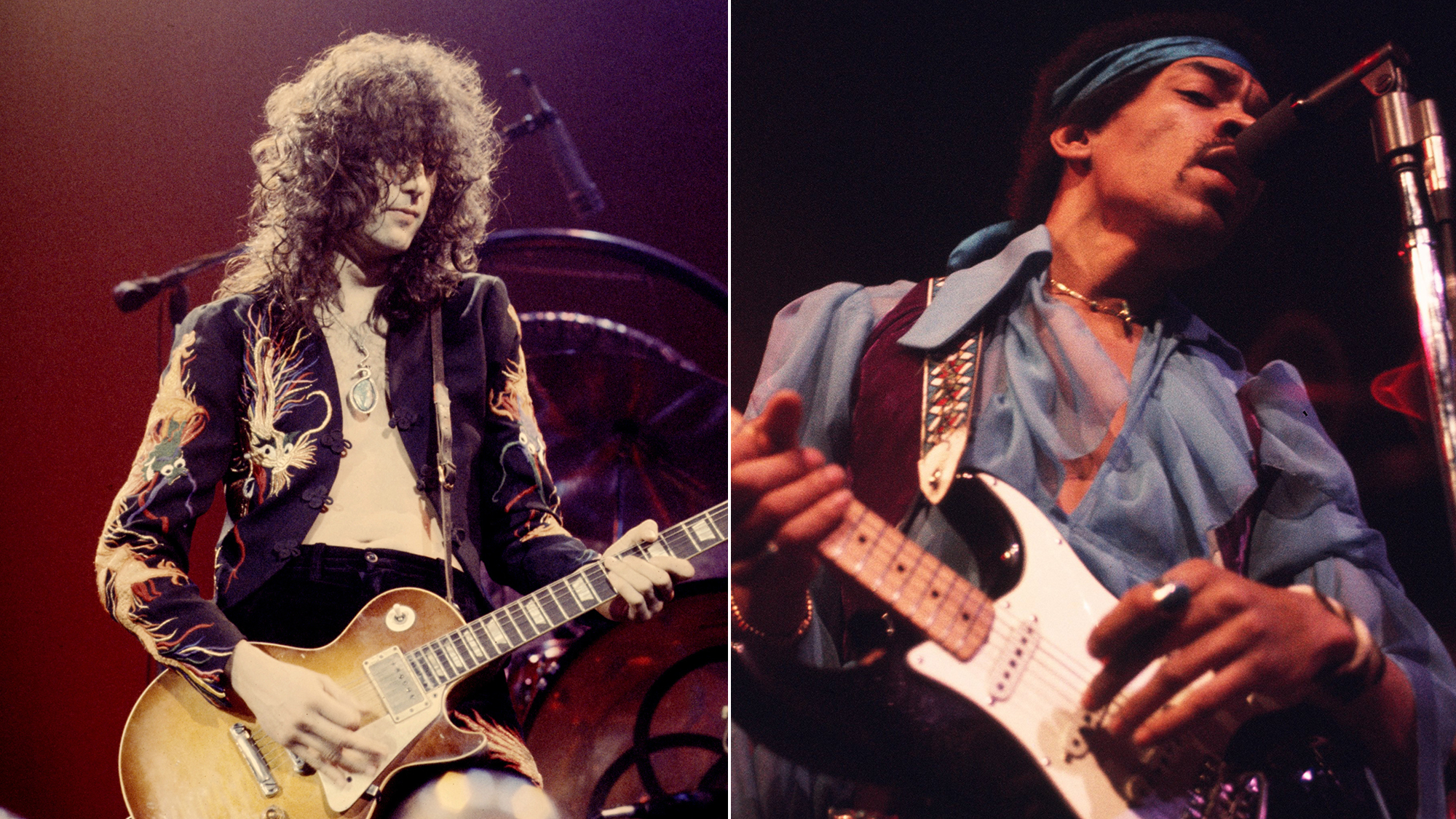George Lynch: “You can get fast using fuzz if you use it in the right way. Look at Eric Johnson – his main tone is a Fuzz Face!”
With his first full instrumental album, Seamless, out now, the guitar legend talks fuzz, the influence of Satch, and explains why he doesn’t want it easy from his gear

Believe it or not, George Lynch’s new album, Seamless, is his first-ever solo instrumental effort – even though it feels like the sort of thing he would have done a long, long time ago.
His 1993 solo debut, Sacred Groove, had its instrumental offerings (as well as tracks with guest singers, including Glenn Hughes) and then in 2010 he released Orchestral Mayhem, on which he covered a number of classical masterpieces in his own inimitable style. So, technically speaking, an album of original instrumentals has been a long time coming by now…
There are some really interesting fuzz tones on this record. What are you using?
“The one I like the most is the Astrotone, made by Sam Ash Music in the '60s. The most famous guy to use them was Leslie West. When you see that coiled cable com-ing out of his Les Paul Junior in old footage, that’s going down to an Astro. I talked to him directly about this but didn’t get a clear answer; there was talk of him using two of those pedals in tandem.
“The Fuzz Face is the iconic one, and they’re wildly inconsistent. Both the germanium and silicon versions can sound great if you get a good one. In germanium’s case, they can be great or horrid, depending on humidity and temperature. There are minerals in the transistors that are affected by the weather.”
Do you ever find that fuzz slows you down or gets hard to control?
“You can get fast using fuzz if you use it in the right way. Look at Eric Johnson; his main tone is a Fuzz Face! It all comes down to how you set them up. I really like the AnalogMan stuff ; they use the old stock chips and make a variety of different stuff.
Get The Pick Newsletter
All the latest guitar news, interviews, lessons, reviews, deals and more, direct to your inbox!
“It makes you play stoner music, and I’m a stoner at heart. I probably love that stuff because I’m dumb. [Laughs] I grew up with Sabbath. They were my first heavy band – I had the poster on my wall.
“Plus, I’m a desert guy and lived out there around Joshua Tree for a while. I loved it! You can be clever and use fuzz like Josh Homme, who does simple stuff in very smart ways.”
It often sounds like he’s fighting his guitars at points.
“Yeah! And I’ve gotten to the point in my career where I don’t want my gear making it easy for me. I want to reach for it a bit more. Maybe it’s a 'getting older' thing. I’ve played other people’s rigs with loads of processing and gain, super-low action, tuned down with .08’s or whatever, and I just don’t like that kind of thing anymore.
“I used to, but now I feel like the easy stuff makes everyone sound the same. I prefer playing more like Jeff Beck – that guy can just talk with his guitar. I want to get closer to that more and more these days. I like the challenge, dynamics and purity of going straight into a Plexi or Tweed.”
Supersonic Hypnotic Groove Thing reminds us of Joe Satriani in more ways than one.
“I guess I emulated him in how I approached the arrangements – essentially replacing the vocals with guitar. Joe makes his guitar talk so great, letting his blues talk the verse and then going to the big hook for the chorus. I tried to do a bit of that on a few points over the album.”
I saw you’d recently got a 1960 Black Beauty that was played on Prince and Rolling Stones albums. Tell us about that.
“I got that 1960 Custom from G.E. Smith. He’s a session cat that ended up playing on a lot of albums. It’s the most worn-in and comfortable old-shoe kind of guitar. You open up the case and it’s like, 'Oh my god!' There’s 70 years of history right there.
“I’m phasing it out a little bit because it was a new acquisition, so I got excited about it and now I’m mixing it up again more. My main guitar is still my ESP GL-56 Strat because it does everything for me. There’s the single-coils, the PAF, all the switching capabilities plus a wonderful neck.”
Is there anything else we’re hearing on the album, guitar-wise?
“Yeah, I have an ESP Les Paul that the Japanese Custom Shop made me in the '80s. They had a real 1958 Gibson that they loaned me for an instructional video called The Guitar Bible. And, of course, they didn’t let me keep it. [Laughs]
“But they promised to make me an exact replica – from the same tonewoods to even the same glue. And they did! So that’s what I’ve used as my main studio Les Paul ever since. It does that chunky thing really well, so that’s in the mix as well.”
Earlier this year you brought out your own Lynch Mod to add an extra gain stage to higher-gain Marshalls. What have you learned about modding over the years?
“Those came out pretty cool. They can get you into high-gain territory with no prob-lem; you can dial in as much as you want. A JCM800 is already pretty high gain, and I tend to prefer the really early vertical-input 50W ones.
“But when you plug the Lynch Mod, it doesn’t take anything away like a Tube Screamer does, which is more of a give-and-take thing. You give up some low-end and smoothness and dynamics for this awesome sustain and singing gain that’s harmonically wonderful.
“With the Lynch Mod, you’re not giving up anything. It just adds to what you have, and only when you want it to. You can use a little, completely bypass it or go totally nuts. There are no square waves in there!”
- Seamless is out now via Rat Pak Records.
Amit has been writing for titles like Total Guitar, MusicRadar and Guitar World for over a decade and counts Richie Kotzen, Guthrie Govan and Jeff Beck among his primary influences as a guitar player. He's worked for magazines like Kerrang!, Metal Hammer, Classic Rock, Prog, Record Collector, Planet Rock, Rhythm and Bass Player, as well as newspapers like Metro and The Independent, interviewing everyone from Ozzy Osbourne and Lemmy to Slash and Jimmy Page, and once even traded solos with a member of Slayer on a track released internationally. As a session guitarist, he's played alongside members of Judas Priest and Uriah Heep in London ensemble Metalworks, as well as handled lead guitars for legends like Glen Matlock (Sex Pistols, The Faces) and Stu Hamm (Steve Vai, Joe Satriani, G3).
“I met Joe when he was 12. He picked up a vintage guitar in one store and they told him to leave. But someone said, ‘This guy called Norm will let you play his stuff’”: The unlikely rise of Norman’s Rare Guitars and the birth of the vintage guitar market
“This would make for the perfect first guitar for any style of player whether they’re trying to imitate John Mayer or John Petrucci”: Mooer MSC10 Pro review








![John Mayer and Bob Weir [left] of Dead & Company photographed against a grey background. Mayer wears a blue overshirt and has his signature Silver Sky on his shoulder. Weir wears grey and a bolo tie.](https://cdn.mos.cms.futurecdn.net/C6niSAybzVCHoYcpJ8ZZgE.jpg)

![A black-and-white action shot of Sergeant Thunderhoof perform live: [from left] Mark Sayer, Dan Flitcroft, Jim Camp and Josh Gallop](https://cdn.mos.cms.futurecdn.net/am3UhJbsxAE239XRRZ8zC8.jpg)
